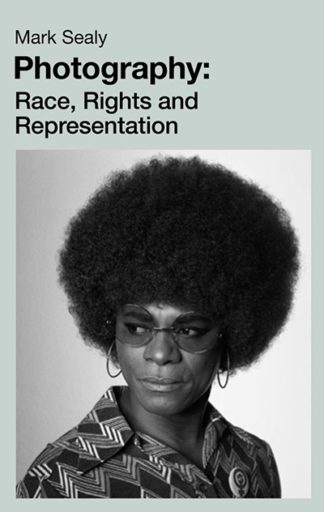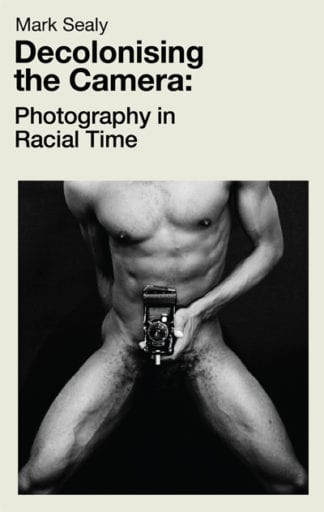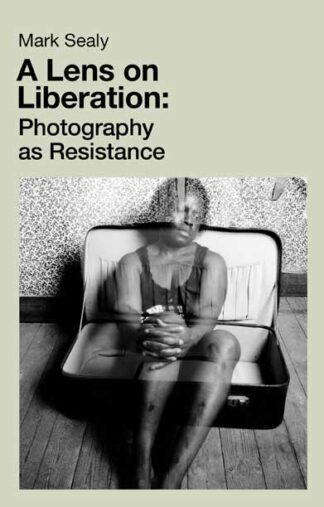One of three-book series by Mark Sealy
In this new collection, Sealy argues that Western photography and its institutions are at a critical juncture, having been forced to reckon with the medium’s colonial history by Black and global majority photographers, artists and cultural theorists who interrogate archives from the perspective of the Other.
Sealy engages the work of underrepresented Black photographers and visual artists who, since the period of decolonisation, have challenged the Othering nature of the colonial camera, from Ernest Cole documenting Apartheid and US anti-blackness to Armet Francis capturing the spirit of Caribbean style in postwar Britain. As a curator, Sealy pays special attention to the role of key photography festivals and exhibitions in providing a space for the work of African and diasporic artists and photographers who were and are challenging the colonial nature of photography’s origins to come to the fore.
Sealy also explores the radical potential of photography once reclaimed and transformed by Black photographers and artists. From the queer interpretations of Yoruba culture by Rotimi Fani-Kayode to the haunting absence/presence in the self-portraits of Hélène Amouzou, Sealy traces how the camera turned inwards has transformed photography into a medium for exploring Black subjectivity, and in turn a practice of resistance. The book includes a 16-page portfolio of images at its centre, featuring artists Zora J Murff, Sandra Brewster and others. See also Sealy's books Photography : Race, Rights and Representation and Decolonising the Camera: Photography in Racial Time
Introduction
Challenging the colonial lens
The Age of Rage: Protest, Camera Action
Over the Shoulder of History
Beyond The Black Triangle: The Photographs of Armet Francis
The Insomnia of the Image
I am YOU
Samuel Fosso: Time Travel
Rights, Space, Air
Re-presenting ourselves
Ernest Cole: A Lens in Exile
Hélène Amouzou: The Space of the In-Between
Time Travels in Agency, Advocacy and Acquisition
The Imagined Museum
In conversation with Zora J Murff
Floor Fillers – Communities in Motion
Everyday People
Vanley Burke in conversation with Mark Sealy
Ways of seeing
Photography and Non-Aligned Histories
Tyler Mitchell, Cultural Turns
Diego Moreno, Malignant Influences
Mocking the Promises
Sandra Brewster
The Forever People: Mónica de Miranda
In Conversation: Trenton Doyle-Hancock
‘In his final entry for a trilogy of books on race and photography, Mark Sealy has woven together the various strands of his 40-year practice: exhibition-making; interviews and travels; research; and a wide-ranging cultural analysis that is at once philosophical in outlook and pedagogical in intent. Through a focus on Black achievements and Afrocentric historical awareness, Sealy maintains, we can all — regardless of our individual background — learn how to think more clearly about humanity and see ways to do better in art and the world at large.
Sealy’s latest book advances through concise, mostly monographic chapters grounded in the exhibition history at Autograph, the small but mighty London arts space that Sealy has directed since 1991. Along the way he intermixes an illuminating review of his involvement in institutions elsewhere, from important biennials such as Rencontres Photographiques in Bamako and Fotofest in Houston to the Paris-based magazine Revue Noire. Through this constellation of people, places and points of reference, Sealy makes clear that photography, as a field, and African and diasporic thought, as a set of discourses, have benefited mightily from his unwavering commitment: to optimism at what may yet come to be, and just as important, to angry protest at the suffering visited on most of humanity by those in power, historically and in the present day.’
Matthew S. Witkovsky, The Art Institute of Chicago, Richard and Ellen Sandor Chair and Curator, Photography and Media, and Vice President for Strategic Art Initiatives




